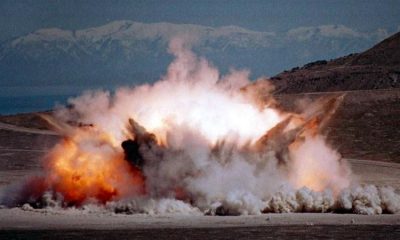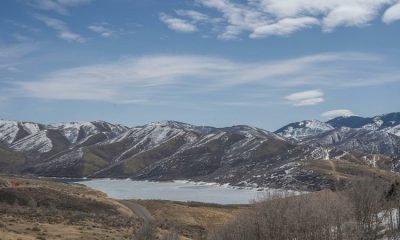Utah
Climate change could mean longer and more intense allergy seasons

Salt Lake City, Utah — According to Dr. Scott Taylor, an allergist with Intermountain Healthcare, allergies are getting worse and worse every time spring rolls around us.
“We have seen a little increase in allergies,” he said. “And with some of the new data coming out showing that we are seeing an earlier pollen season and lasting longer, so I can attribute that that is true. We are seeing that.”
According to new research from Nature Communications, The U.S. will face up to a 200 percent increase in total pollen this century if the world continues producing carbon-dioxide emissions at a high rate. In that case, the spring pollen season would start up to 40 days earlier and last up to 19 days longer than it does today.
“There are just so many implications of climate change that we’re not thinking about on a day-to-day basis,” said Alex Veilleux, a policy associate with the Healthy Environment Alliance of Utah. “Most people, they just think, ‘It’s just going to be a couple degrees warmer in the summer, whatever, it’s already hot in Salt Lake, who cares.'”
Veilleux hopes if people realize how close to home climate change is hitting, they’ll start to care.
“There are so many unforeseen things that will start happening when you start messing with the natural biological systems on our planet,” he said. “The ecosystems are so delicately balanced and nuanced that this allergy stuff is just the start with we’re going to see. It’s not just going to be these far-off places that are going to be affected by climate change. This will be affecting us directly on the Wasatch front.”
-

 Local News2 weeks ago
Local News2 weeks agoUtah libraries celebrate National Library Week
-

 Local News1 week ago
Local News1 week agoThe Jewish community in the area responds to a potential Iranian invasion on Israel
-

 Local News2 weeks ago
Local News2 weeks agoTransit will be redesigned and expanded by UTA by the potential 2034 Olympics
-

 Local News2 weeks ago
Local News2 weeks agoWhy Utah might have rumblings for the next five months
-

 Local News2 weeks ago
Local News2 weeks agoStudent protests against an anti-trans speaker at the University of Utah
-

 Local News1 week ago
Local News1 week agoGorilla in Hogle Zoo expecting a new little bundle of joy
-

 Local News1 week ago
Local News1 week agoAfter 119 years, a Salt Lake company is moving to Murray, and the structure will be demolished
-

 Local News1 week ago
Local News1 week agoSignificant weather changes will bring Utah rain, snow, and cooler temperatures







Leave a Reply